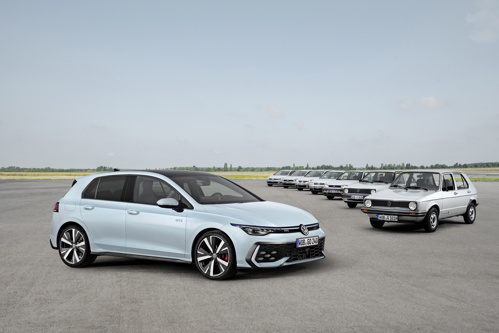Volkswagen and Audi are reassessing their commitment to an all-electric future as demand for EVs slows.
In 2024, VW’s electric vehicle sales dropped by 2.7%, while Audi, which recently disclosed plans to move upmarket, saw an even steeper decline of 7.8%.
The broader Volkswagen Group recorded a 3.4% decrease in EV demand, raising questions about the pace of its transition away from internal combustion engines (ICE).
According to Handelsblatt, VW and Audi are considering further investments in petrol and hybrid models, delaying their full-electric transition. This move contradicts previous commitments to phase out combustion engines in Europe by 2033.
VW and Audi maintain "flexibility"

Audi CEO Gernot Dollner has already acknowledged the brand’s evolving stance, stating that the company is staying "flexible".
Meanwhile, VW’s head of technical development, Kai Grünitz, hinted that the current Golf Mk8.5 could remain in production until the mid-2030s, even as an electric Golf Mk9 is still in the pipeline.
A formal decision on further ICE investments is expected in March. If approved, this shift could influence other VW Group brands such as Skoda and Seat/Cupra, which share key platforms and powertrains.
Luxury brands also slowing EV adoption
VW Group’s high-end marques are also revising their EV strategies.
Porsche has backtracked on plans for an all-electric future after Taycan sales plummeted by 49%. The next-generation Macan, initially envisioned as an EV, is now expected to retain combustion options.
Similarly, Bentley has delayed its first EV from 2025 to 2026 and pushed its petrol phase-out goal to 2035.
Lamborghini is following suit, pushing back the launch of its Lanzador EV from 2028 to 2029. However, the next Urus will be fully electric, while traditional V8 and V12 models will remain in production into the 2030s.
Future of ICE in the EU
The European Union’s 2035 deadline mandates zero harmful emissions, not a total ICE ban, leaving room for synthetic fuels and hydrogen-powered combustion engines.
However, the widespread adoption of alternative fuels remains uncertain. If EV demand continues to stagnate, manufacturers are likely to pressure the EU for regulatory delays.
As of 2024, the market share of electric vehicles in the EU has already fallen by 1% to 13.6%, according to the European Automobile Manufacturers’ Association (ACEA).
Given the global influence of European automakers, any shift in strategy will have far-reaching effects on the industry.





